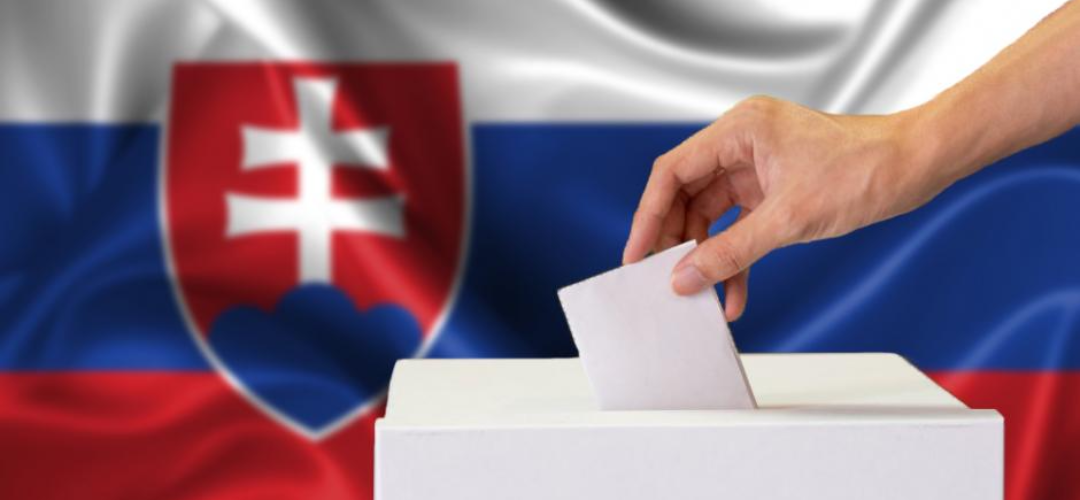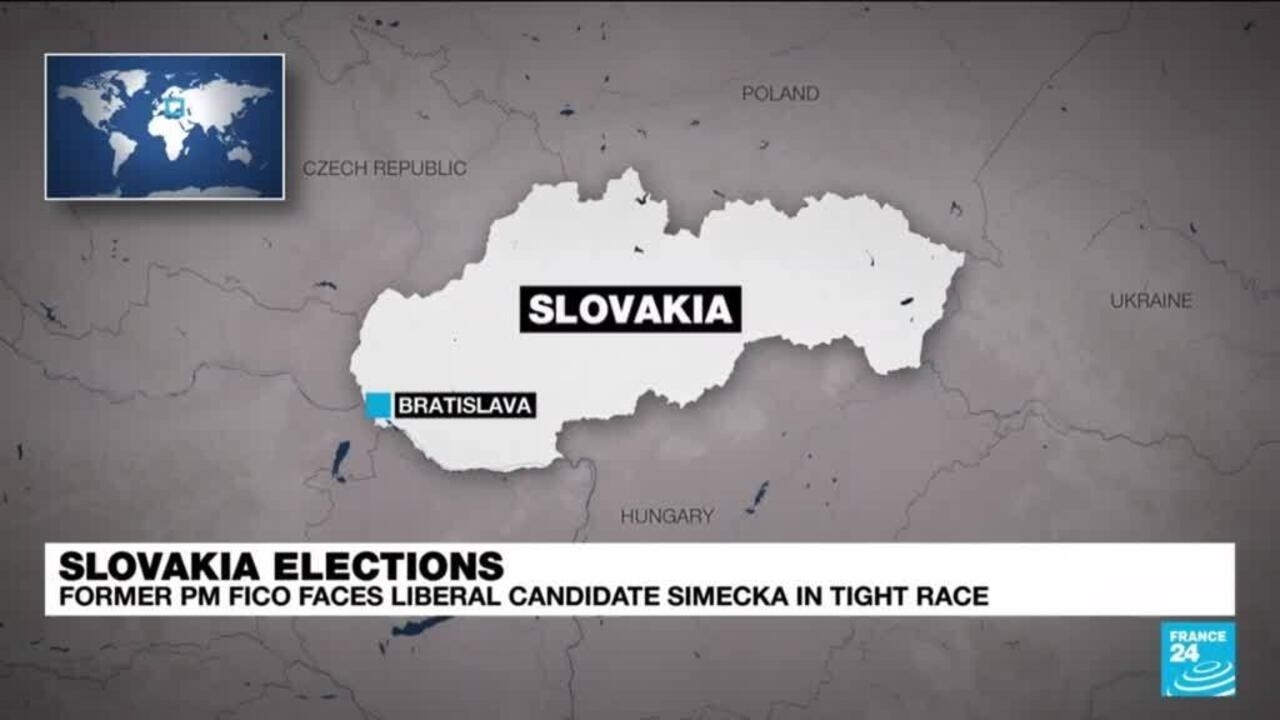A Crack in the Wall?
October 7, 2023 | Expert Insights

There is much to differentiate between Europe's Western and Eastern halves, almost as if they are from two ends of the globe with a vast gulf between them. These were based on ethnicity, religion, language, and culture for millennia. Till the dawn of the 19th century, the nation-states and sovereign boundaries were ever-changing through wars and conquests, with the Great War adding its own catalysts to this volatile mix. It was really after World War II that the boundaries of nations in Europe stabilised.
There was a flux once again when the USSR collapsed, and the newly independent states that were reborn had the ardent hope that they would be absorbed by the liberal and prosperous Western half and become like them. Some, like Poland and Estonia, achieved this dream more successfully. At the same time, many remained in limbo, caught in the geopolitics between the West and a rising Russian Federation under Mr Putin. When Russia became a powerhouse of energy supplies, many of its erstwhile satellite states gravitated towards Moscow, coupling into this immense source of gas and oil.
The Russian 'special military operation' in Ukraine has turned the stability of Europe on its head. Cracks are slowly and steadily developing behind the façade of a united Europe against an aggressor Russia. The initial symptoms are Poland and Slovakia, some of the more advanced economies of erstwhile Warsaw Pact nations.
Background
As the Ukraine war drags towards an exhausting milestone of a second anniversary in another four months, all is not well with Russia and its rival, the Western coalition.
The remarkable spontaneous enthusiasm and the accompanying flow of funds, weapons, food, medicine, and warm refuge for over 6 million displaced Ukrainians, which united Europe as never before, is clearly losing steam.
While the U.S. and its leading E.U. partners may have done the heavy lifting financially, the key to this unflinching support was Ukraine's neighbours; now, the immense pressure the war has generated is telling upon them. This includes Poland, Romania, Slovakia, etc., who not only moved weapons and ammunition from their small arsenals and acted as conduits for Western arms and advisors but also unflinchingly welcomed millions of displaced Ukrainians into their homes and hearths, a courtesy never extended to the thousands of illegal migrants swarming European shores from Asia and Africa.
The two principal players are Poland and Slovakia. Both governments were unstinted in their support of their immediate neighbour in any form, fully aware of the foreboding possibility that it could be their necks on the chopping block next! The only outlier in this case was Hungary. Its leader, Viktor Orban, decided that completely burning bridges with Russia was not prudent despite Hungary's long history of Russian excesses.
But as the war drags on, the economic and domestic pressure is mounting, and the strain is becoming clear. The goodwill cannot last forever, and the first cracks are making their appearance in Slovakia and Poland. To compound an already bad situation, right-wing forces that oppose support to Ukraine at the cost of their nation's interest, at the bidding of the U.S. and its NATO allies, have started gaining traction within these countries, asking for a reorientation in their Ukraine war policy.
Robert Fico of the populist Smer-SD party, with 23 per cent of the vote, is now in power. His election plank for victory was strident criticism of the European Union, NATO and the funding of the war in Ukraine. He wants to blame Moscow and Kyiv equally; surprisingly, all this rhetoric resonated with the voters, as the results prove.
As per the influential New York Times (03 Oct 2023), encouraged by Slovakia’s initiative, Hungary and Serbia are showing “significant sympathy for President Vladimir V. Putin of Russia; the tides have shifted in this part of Europe.” Poland has already closed its borders to Ukrainian grain imports as the low-priced commodity disrupted grain prices in Poland. As per NYT, even Western Europe is not immune to this sentiment; a German Marshall Fund poll found that the "support for Ukrainian membership in the European Union stood at just 52 per cent in France and 49 per cent in Germany. In Germany, only 45 per cent of respondents favoured Ukrainian membership in NATO.”

Analysis
All this was bound to happen one day or another.
From the beginning, the war has been framed as a struggle between democracy and autocracy. This framing had important ideological implications. If the choice could be framed in this way, then the choice to support it would become binary in nature. One side was good, and the other side was bad. There was no middle ground.
Under this logic, the people opposing this war were Russian lackeys. National interests did not matter anymore. What mattered was Ukraine’s interests. Everybody else was expected to fall in line. All other issues became secondary. A regional war was given an existential dimension.
Such an approach would have been well and good if the countries that were actually helping Ukraine had been treated with greater respect and sympathy rather than all the attention being hogged by Mr Zelensky. These countries surrounding Ukraine have borne the brunt of this war. They have not asked for anything in return. This was a very altruistic and generous foreign policy. The contribution here was much more in human costs than anything that Western Europe and the United States have supplied materially. Such a show of solidarity is a very rare thing in international politics. It looked like realpolitik was subsumed in the face of a moralistic foreign policy. But this was not the case.
Right-wing forces exist in various European countries as they exist in the United States. Each of these parties is quite different from each other. Other than certain commonalities, there are significant differences between these parties. This is not like the Second World War when authoritarian groups came together to wage a common battle under the Axis banner.
In the case of Slovakia, the Direction-Social Democracy (SMER) party of Robert Fico, now voted to power, is leading the charge, advocating the policy “Slovakia first”. The SMER claims that the Slovak people's sacrifices for Ukraine have not been recognised, more is being asked of them, and the pressure on the national economy is nearly destroying the country. The social liberal political party Progressive Slovakia had challenged Fico in this election with a political message that was pro-EU and anti-Russian; this failed to resonate with the voters.
Hungary's Orban is one of the main beneficiaries of this change in government in Bratislava, as his stance on the Ukraine war is getting some support from other regional countries. He was one of the first foreign leaders to have congratulated Fico on his success.
But there is a risk for a small nation like Slovakia, a relatively minor member of the bigger European Union. It still needs the EU in many respects. Euroscepticism is high in the country. Whether this has translated into pro-Russian feelings remains to be seen. Poland and Hungary will not completely align with Slovakia. At the end of the day, each of these countries will deal with Ukraine in its own way.
The incoming prime minister of Slovakia has his own problems. He has faced serious corruption charges in the past. When he last came to power, he had to moderate his position. His human rights record is also not very good. In 2018, he was forced to step down after the murder of investigative journalist Jan Kuciak. So, Fico’s hands are not exactly clean. On top of this, he might have to form a coalition government with the pro-European Hlas Party. This will further constrain his decision-making power. Whatever decision he takes will not be simple or straightforward. It will be based as much on his political survival as on Slovakia's best interests.
Assessment
- The election results in Slovakia are part of a larger trend of right-wing resurgence in the West. These elections could be a game-changer for the war in Ukraine. Slovakia does not have to go over to the Russian camp. It just has to stop supporting Ukraine militarily, which could potentially trigger a landslide of identically placed countries pulling out of the supporting camp. This will not be good news for the Ukrainian war effort.
- The E.U., and to an extent the U.S., must relook at their Ukraine war policy vis a vis the Eastern European countries that are directly impacted by this drawn-out war.
- This should come as a wake-up call for Kyiv, too; has it in some ways inadvertently or advertently angered its neighbours by bending too much to please the bigger supporters like the U.S., Germany, the U.K. and France? Flagging support for the war could be fatal for all the sacrifices made to date. All parties must quickly look at their respective roles de novo.








Comments